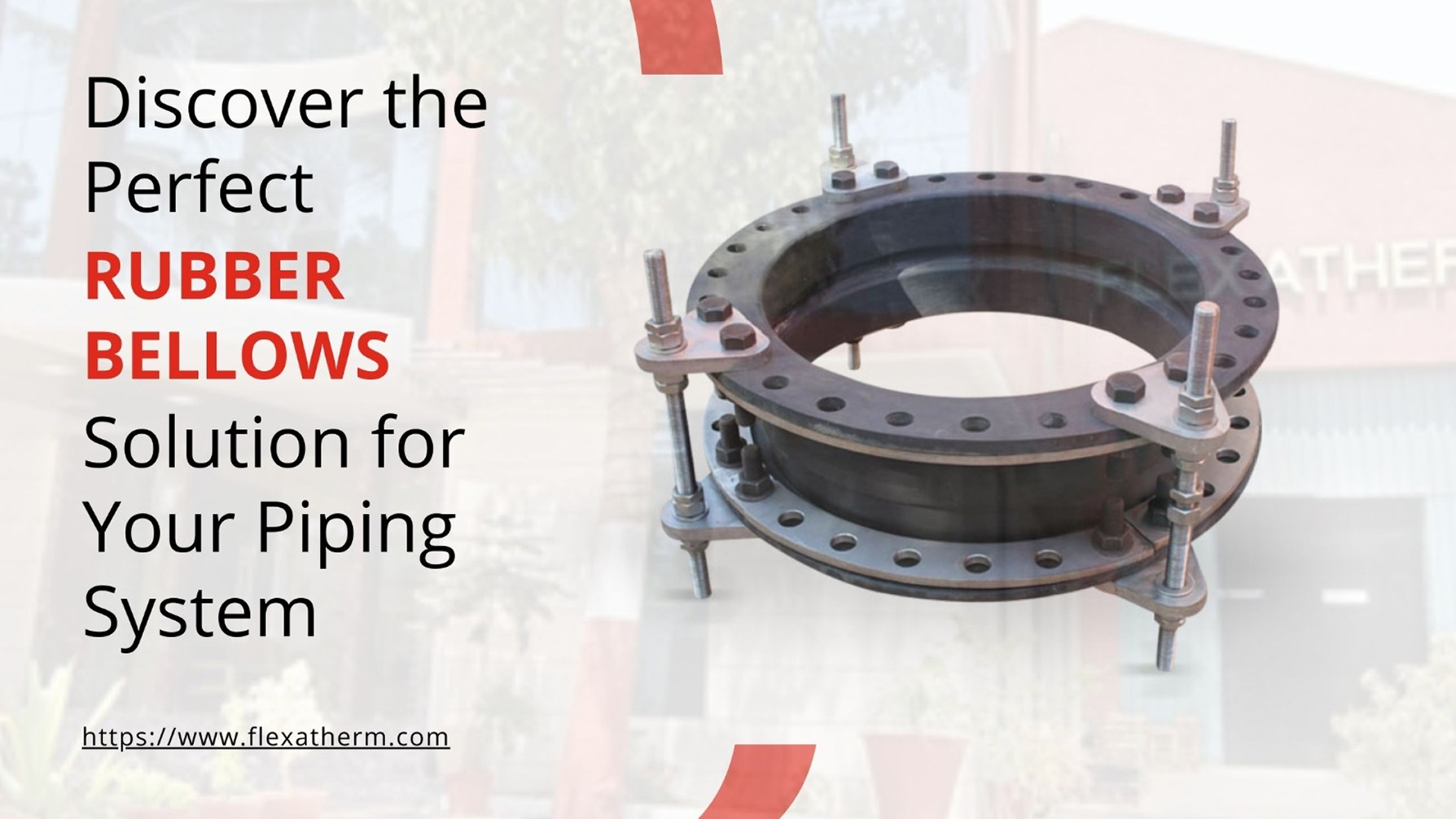When it comes to ensuring flexibility, absorbing vibration, and compensating for movement in piping systems, rubber expansion bellows are the unsung heroes behind the scenes. Whether you're dealing with HVAC systems, chemical plants, or marine installations, these flexible connectors offer perfect solutions for different challenges.
In this complete guide, we'll dive deep into the world of rubber bellows—from material types and real-world applications to customization and performance benefits. If you're looking to require, install, or upgrade your rubber bellows, this blog has all you need to know.
What Are Rubber Expansion Bellows?
Rubber expansion bellows (or rubber expansion joints) are flexible connectors made from various types of rubber compounds. They are designed to absorb mechanical and thermal movement, reduce noise and vibration, & compensate for misalignment in pipe systems.
Popular Types of Rubber Expansion Bellows and Their Benefits
1. EPDM Rubber Expansion Bellows
Best For: High durability and weather resistance
EPDM rubber is known for its exceptional resistance to weathering, ozone, and UV. It performs well in hot and cold-water applications and is commonly used in HVAC systems and water treatment plants.
Why Choose EPDM?
- Withstands harsh environmental conditions
- Great for outdoor installations
- Long service life
2. NBR (Nitrile) Rubber Bellows
Best For: Oil and fuel resistance
NBR rubber bellows are perfect for oil-based media. Their resistance to grease, hydraulic fluids, and petroleum products makes them a go-to for automotive and petrochemical systems.
Ideal Uses:
- Oil refineries
- Engine piping
- Fuel systems
3. Neoprene Rubber Bellows
Best For: Chemical resistance and fire safety
Neoprene offers great resistance to many chemicals, and it also has self-extinguishing properties, making it perfect for use in industrial environments where both fire resistance and flexibility are important.
Common Applications:
- Chemical plants
- Offshore rigs
- Fire-prone areas
4. Silicone Rubber Expansion Joints
Best For: Extreme temperatures
Silicone rubber is a champion when it comes to high-heat tolerance. It remains flexible at both low and high temperatures, making it ideal for industries that involvement wide temperature blows.
Key Benefits:
- Operates in extreme heat (up to 230°C+)
- Maintains flexibility in cold environments
- Non-toxic and odorless
5. Fabric-Reinforced Rubber Bellows
Best For: High pressure and mechanical strength
When your system demands extra durability, fabric-reinforced bellows increase. These are rubber bellows embedded with synthetic or natural fabrics, enhancing stretchable strength and pressure tolerance.
Ideal For:
- Power plants
- Hydraulic systems
- Industrial pipelines
6. Natural Rubber Bellows
Best For: Cost-effective, eco-friendly applications
Natural rubber is flexible and offers decent resistance to wear and abrasion. While it's not suitable for oil or chemical exposure, it's a budget-friendly choice for basic water and air systems.
Best Applications:
- Low-pressure water systems
- General ventilation
- Eco-conscious installations
Custom Rubber Bellows: Tailor-Made to Your Needs
Not all systems are created equal—so why should your bellows be? Custom rubber bellows allow you to select the material, size, length, and reinforcement to perfectly match your operational requirements.
Customization Options:
- Material (EPDM, NBR, Neoprene, Silicone, etc.)
- Fabric reinforcement
- Flange or threaded ends
- Shape (conical, cylindrical, spherical)
Use Case: A manufacturing plant dealing with abrasive slurry needs a rubber bellow resistant to both pressure and chemicals—these calls for a custom-built, fabric-reinforced NBR bellow.
Applications Across Industries
HVAC Systems
Rubber bellows are essential in HVAC systems for absorbing thermal expansion and reducing vibration. They are crucial for extending the lifespan of compressors and minimize stress on piping joints.
Chemical and Petrochemical
Chemical plants need rubber bellows with excellent chemical resistance, especially neoprene or silicone variants. They help handle aggressive media without destroying or leaking.
Marine and Offshore
The marine environment demands resistance to saltwater, oil, and high pressure. EPDM and NBR variants are generally used for their strength and performance under harsh situations.
Power Generation
In high-temperature, high-pressure power plants, reinforced rubber bellows ensure vibration isolation and mechanical flexibility.
Why Rubber Bellows Matter
rubber expansion bellows might not be flashy, but they're dynamic for smooth operation and equipment longevity in uncountable industries. From absorbing vibration in HVAC systems to resisting chemicals in petro plants, they do it all—quietly and reliably.
Looking to buy or customize rubber bellows for your project?
Explore a variety of options with expert guidance and high-quality materials. Get the right fit today and ensure your system runs stress-free tomorrow.
Contact Our Experts


